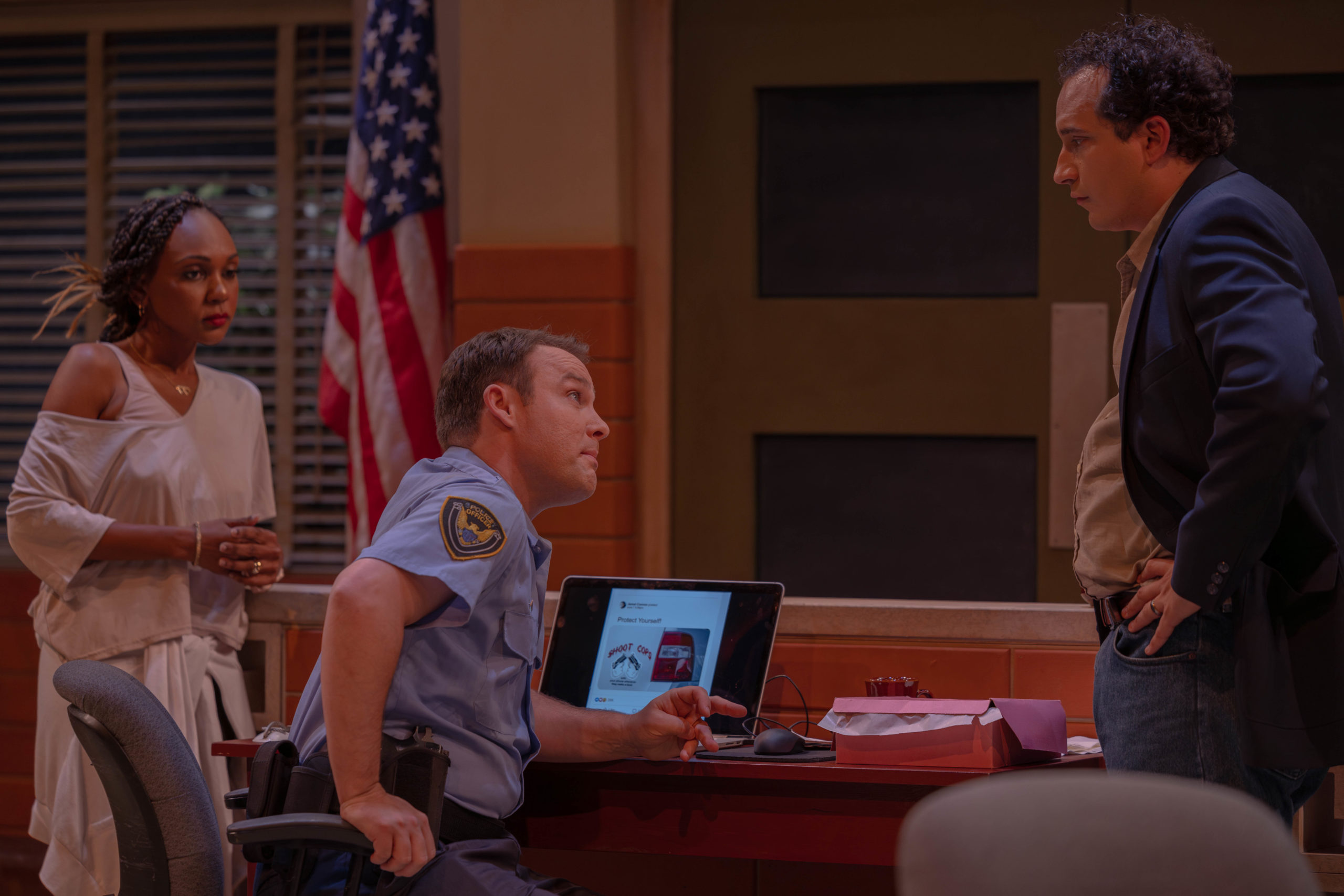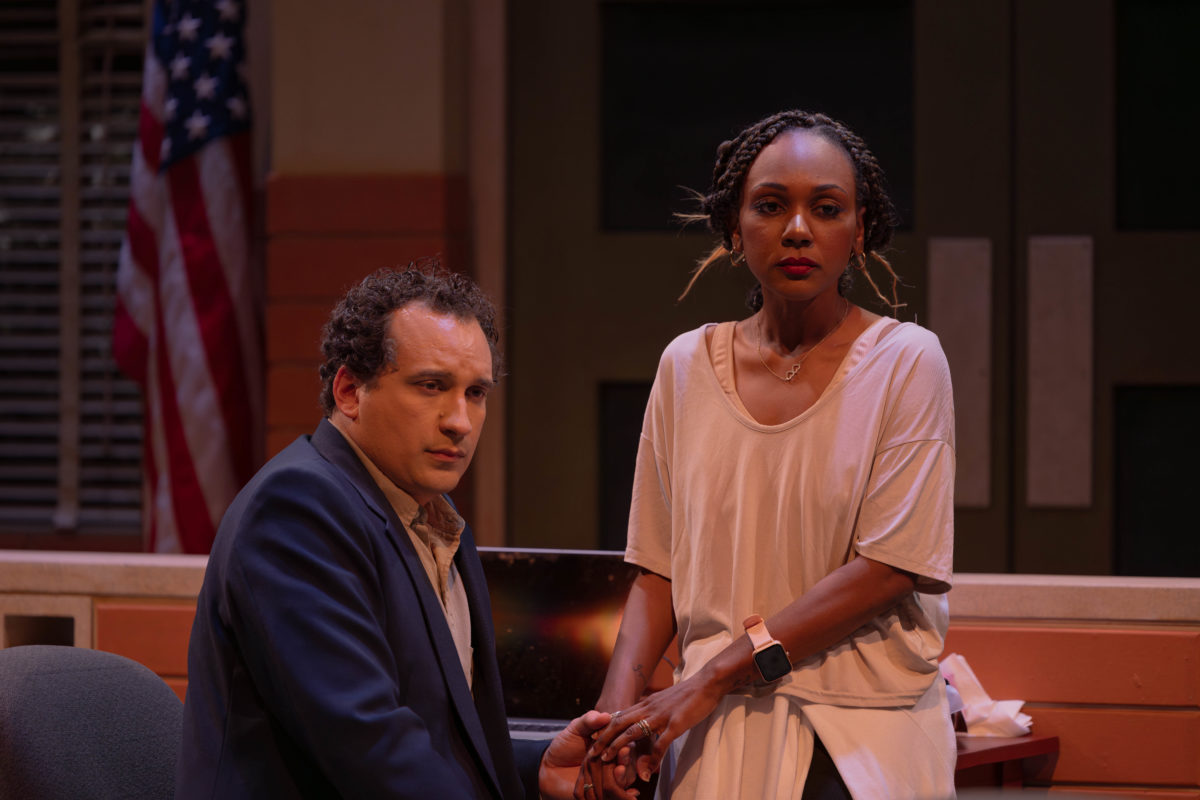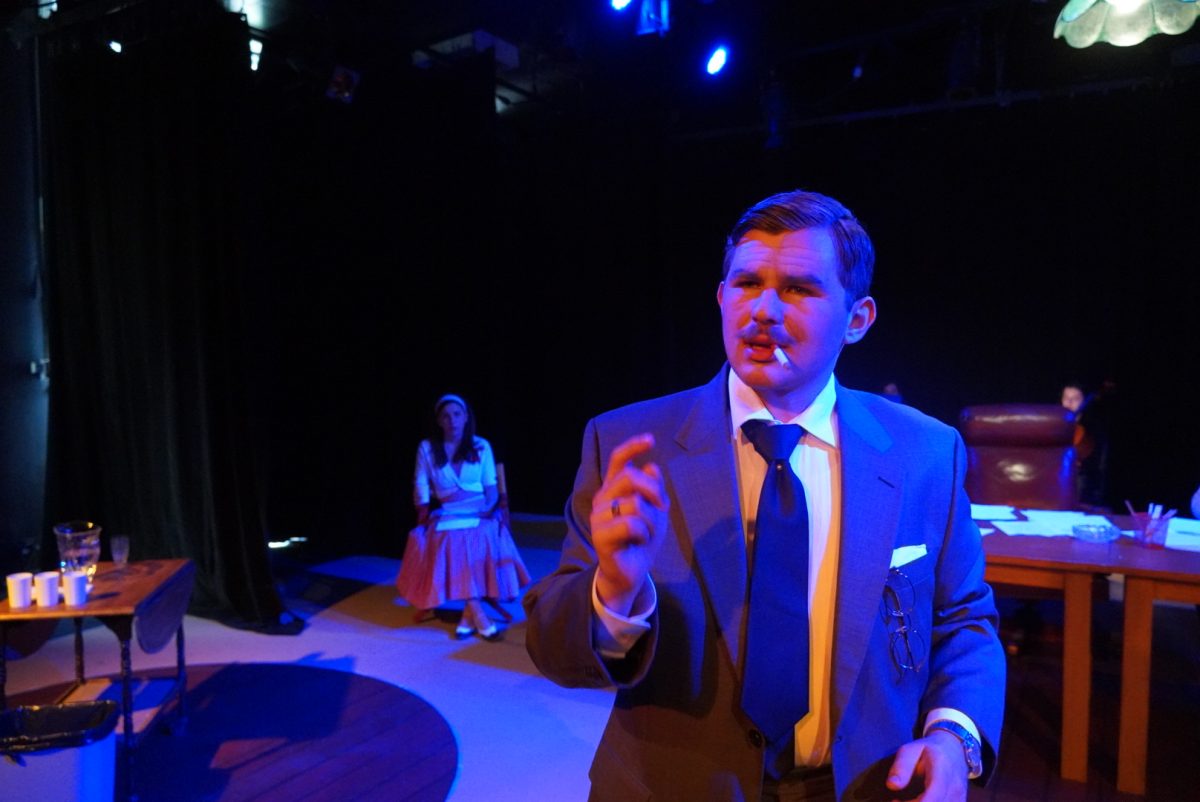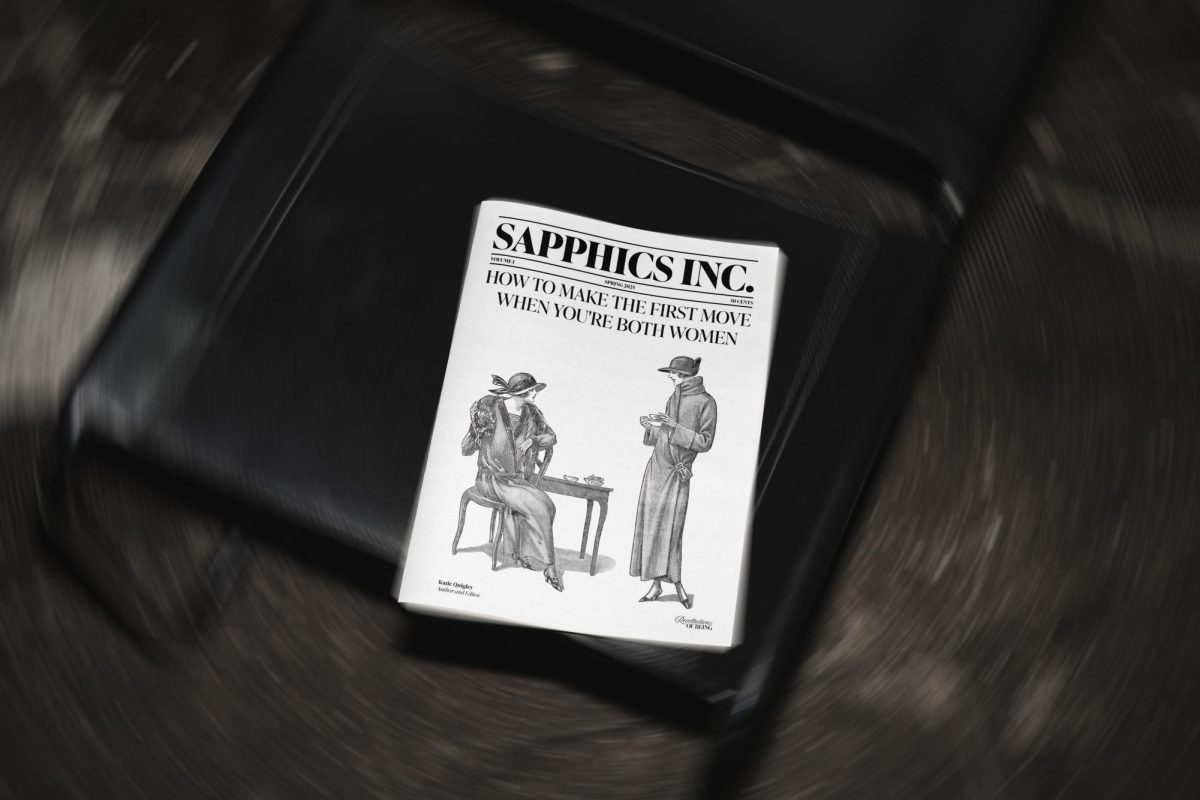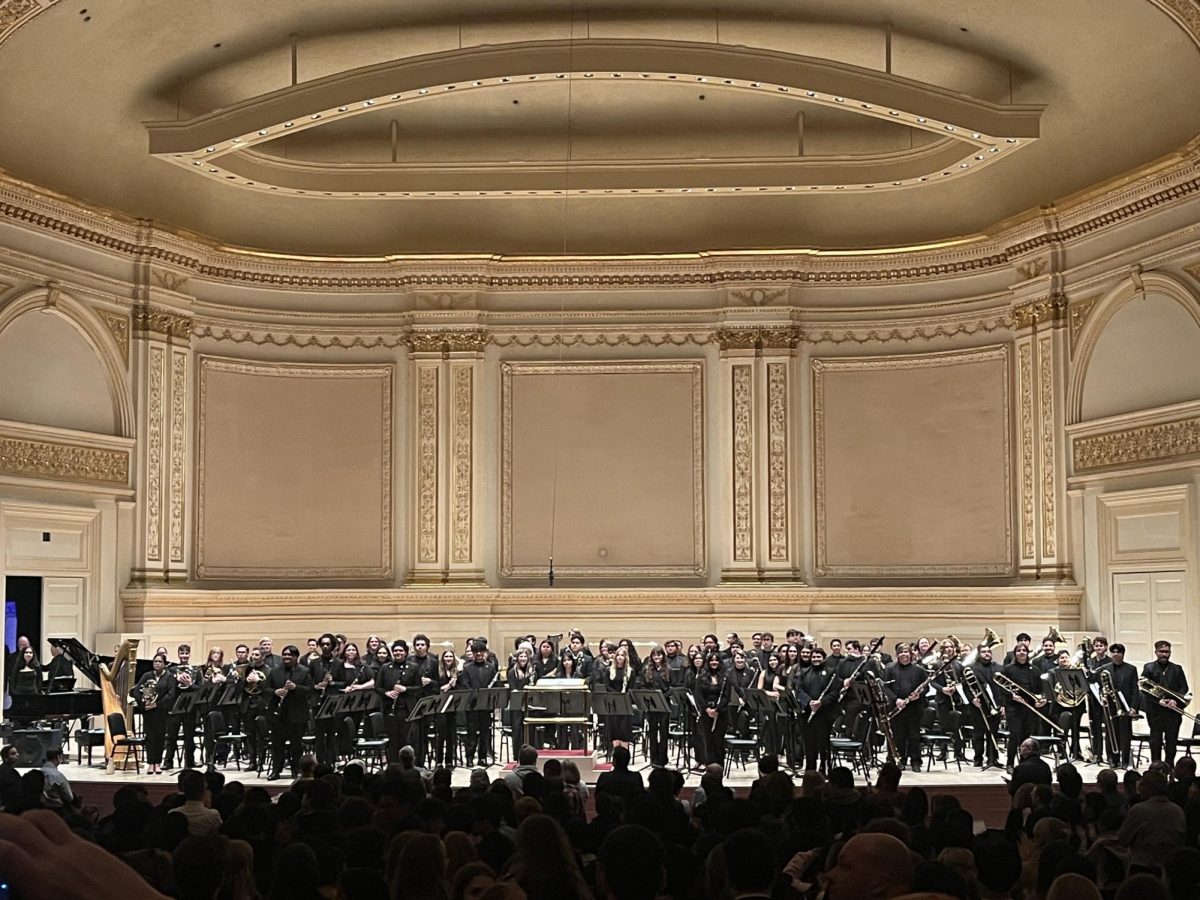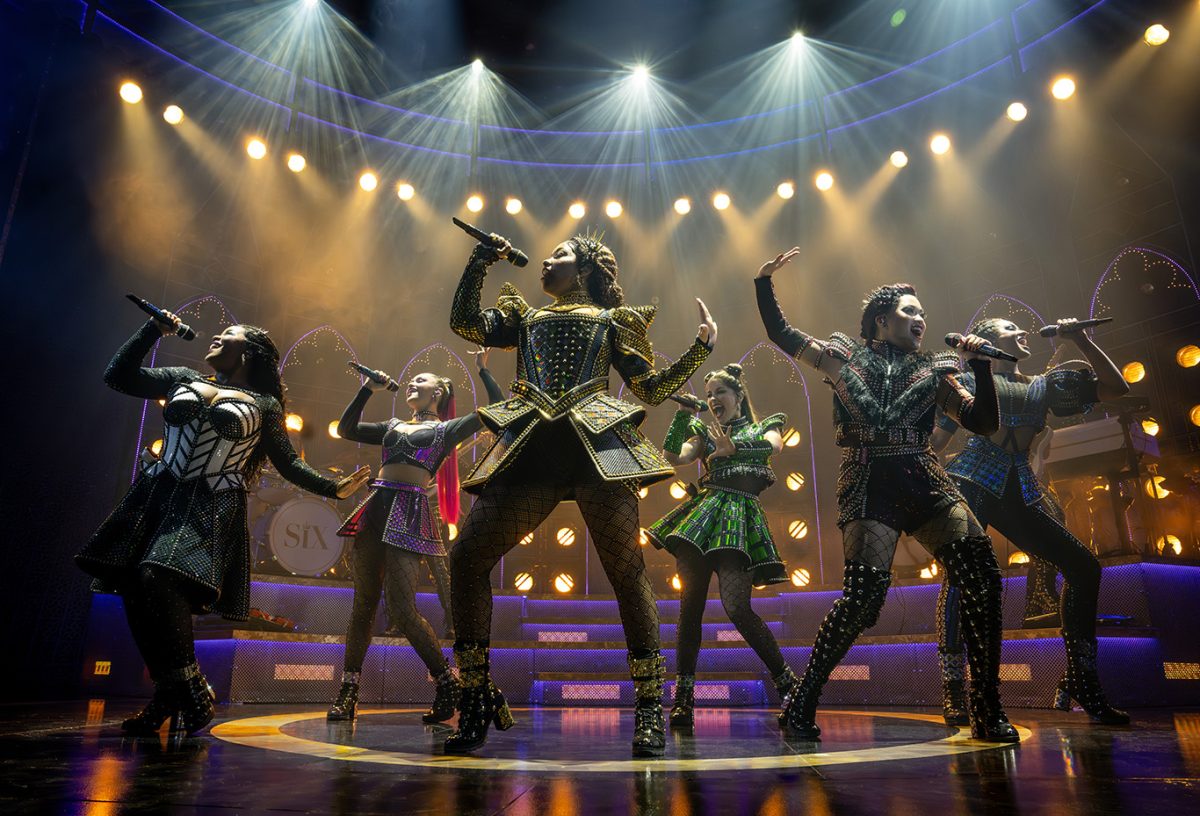“American Son” is a critique of the American justice system, emphasizing the complexities of race and identity in the United States.
The play was written by Miami trial lawyer Christopher Demos-Brown and directed by Thomas-Whit Ellis, a Fresno State professor theater professor for theatre and dance. The production runs through Saturday, Oct. 7, at the Dennis and Cheryl Woods Theatre.
Set entirely in the waiting room of a Miami police station, the story revolves around a mother named Kendra Ellis Connor, played by Ananda Shaffer. The play kicks off with a strong fit of rage powerfully portrayed by Shaffer whose character is trying to call her missing son, Jamal, on the phone. She knows there has been an incident with his car but can’t get any information from police.
Shaffer embodies the spirit of an anxious, worried mother throughout the play. Initially, as the play starts, the audience knows very little about the situation at hand, which gives Shaffer time to grow into her character.
Meanwhile, James Hume, who portrays the character of Officer Paul Larkin, is in charge of keeping Kendra at bay as she persistently pleads and scolds Larkin about his negligent attitude concerning the whereabouts of her son.

It is interesting to see that Larkin seems more worried about calming the nerves of the worried mother even though it is later revealed that he does have answers, he just won’t give it to her. Which leaves the audience with the question of wondering why the police department would withhold information, given how persistent and troubled Kendra is being with Larkin.
Another spectacular performance and, for me personally, the best throughout the play, was Hume, as he charismatically portrays the silly and unserious nature of his character through some pretty strong facial expressions.
Yes, the play does have some humor, although occasionally and very subtly. It hits just right and only when it is appropriate and almost every time Larkin is in the scene.
The character dynamics are also a strong point, and I think it’s due to the actors’ ability to portray a life-like conversation whenever they talked over each other. It strengthened the believability of the dialogue.
Scott Connors, played by Jacob Sherwood, is the father to Jamal and husband to Kendra. But he isn’t just any father and husband. He’s a part of the federal law enforcement agency, putting him in a position of authority. Or so you would think as Scott finds himself powerless in the system that he works for as his beliefs are challenged.
I couldn’t help but smile whenever Kendra and Larkin were on stage together, more than when Scott and Kendra were.
Their banter and arguments were the highlight of the play as the two worked together to create the lingering feeling of confusion and frustration that audiences can feel with Kendra.
We also get to learn how incompetent Larkin is through Kendra’s developed brazen attitude. She sees through Larkin’s trivializations.
Elizabeth Crifasi’s lighting design is very good. In almost every scene, characters were verbally going back and forth at each other’s throats. Lights turned red when characters were in distress.
The sounds of pouring rain in the background set the gloomy nature, whilst a loud roaring thunder boomed to signify a trivial moment throughout the story.
Blue light represents a character deep in their feelings.
It was also interesting to see how whenever a character spoke, the other character that they were speaking to was cast in a dark shadow with no light even though they exist in the same scene.
That is because the attention is needed on whoever was talking, signifying that what they’re saying is important to not just the play, but of the theme itself.
The story may seem predictable and audience members can grasp what happens to Jamal by the middle half of the play. The ending plays out emotionally.
Shaffer’s excellent performance is dramatic and almost heart-stopping.
“American Son” criticizes the justice system’s contributions to systemic racism and how it can affect mothers, too.
